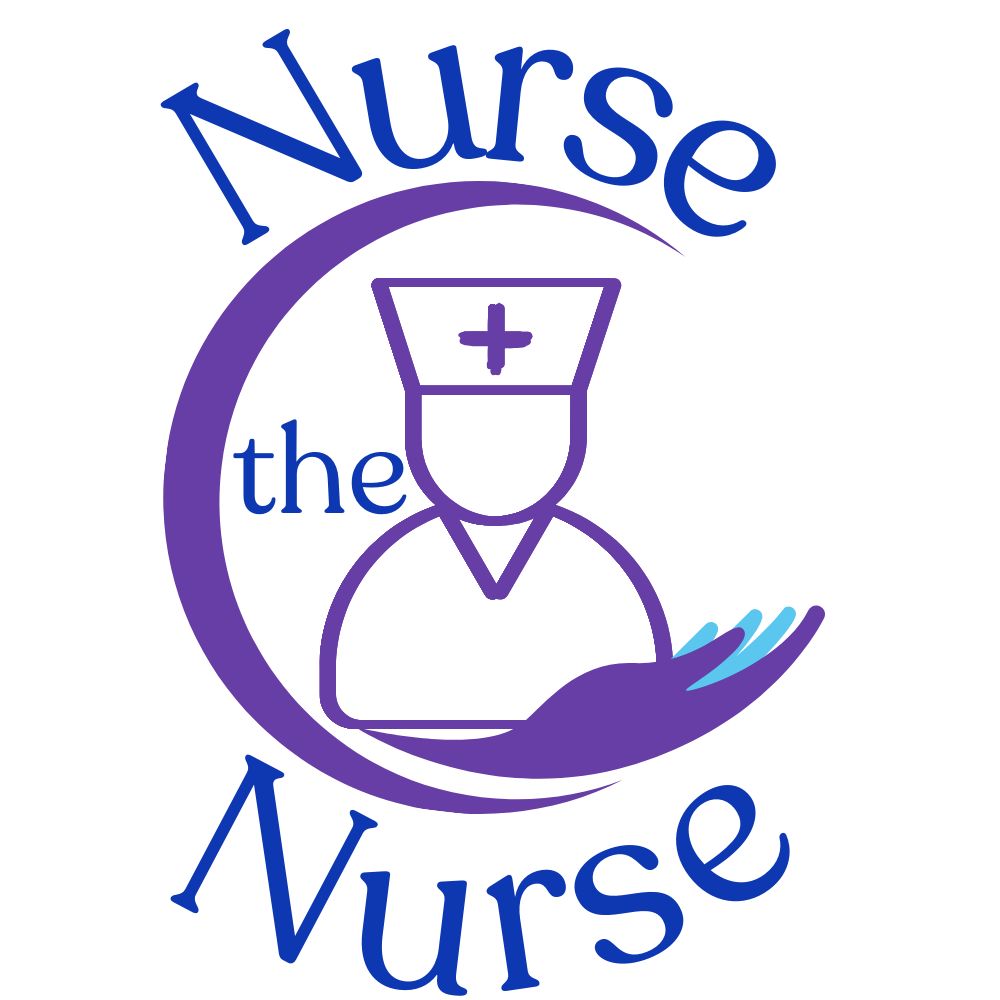Fidelity In Nursing
It builds trust between patients and healthcare providers, which is essential for effective therapeutic relationships. When nurses demonstrate fidelity, they reassure patients that their welfare is the top priority, creating a safe space for healing and recovery.

Key Takeaways:
- Fidelity in nursing is a fundamental ethical principle that involves being faithful to the commitments made to patients and colleagues.
- It encompasses maintaining confidentiality, providing competent care, and advocating for patient welfare.
- Nurses can cultivate fidelity by staying informed about ethical guidelines, engaging in continuous education, and reflecting on their practice.
Fidelity in nursing is a cornerstone of the profession, reflecting the deep commitment nurses make to their patients, their practice, and the ethical standards that guide them. This article delves into the essence of fidelity in the nursing profession, exploring its implications, challenges, and the ways in which nurses can embody this vital principle throughout their careers.
The 7 Basic Ethical Principles of Nursing
The ethical framework of nursing is built upon seven fundamental principles that guide nurses in their daily practice. Some sources cite only the first four, but many include all seven. These principles ensure that nurses provide care that is ethical, patient-centered, and professional.
- Justice: Justice in nursing means treating patients fairly and equitably. It involves the fair distribution of resources, respect for patients' rights, and impartiality in care.
- Autonomy: Autonomy respects the right of patients to make their own healthcare decisions. Nurses uphold this principle by providing all the necessary information to patients and supporting their informed choices.
- Beneficence: Beneficence requires nurses to contribute to the well-being and health of patients. It involves taking actions that are in the best interest of the patient and actively promoting good.
- Nonmaleficence: Nonmaleficence is the commitment to do no harm. Nurses must protect their patients from harm and ensure that interventions do not cause unnecessary suffering or injury.
- Accountability: This principle obligates nurses to be responsible for their actions, decisions, and the outcomes of their care. It also involves being answerable to oneself, the patient, and the healthcare organization.
- Fidelity: Fidelity refers to the principle of keeping one's promises or commitments. In nursing, this means maintaining the trust of patients by providing care that is consistent with what has been promised or agreed upon.
- Veracity: Veracity stands for truthfulness. Nurses must be honest and provide accurate information to patients, allowing for informed consent and ethical decision-making.
The Essence of Fidelity in Nursing
Fidelity, derived from the Latin word 'fidelitas,' means faithfulness, and in the context of nursing, it refers to the unwavering commitment and loyalty nurses show towards their patients and the profession. It is a promise to deliver safe, competent, and ethical care, to maintain confidentiality, and to advocate for the rights and well-being of those under their care. This principle is not just a moral compass but also a legal and professional obligation that is embedded in nursing codes of ethics worldwide.
The importance of fidelity cannot be overstated. It builds trust between patients and healthcare providers, which is essential for effective therapeutic relationships. When nurses demonstrate fidelity, they reassure patients that their welfare is the top priority, creating a safe space for healing and recovery. This trust is particularly crucial in times of vulnerability, such as illness or injury, where patients must rely on nurses to be their advocates and protectors.
Fidelity and Patient Advocacy
Patient advocacy is a direct expression of fidelity in nursing. Nurses often find themselves as the intermediaries between patients and the complex healthcare system. They play a crucial role in ensuring that a patient's wishes are respected, that they are informed about their treatment options, and that their voice is heard in decisions that affect their health. Advocacy can take many forms, from simple acts like clarifying medical jargon to more complex situations such as supporting a patient's right to refuse treatment.
Advocacy also extends to the broader healthcare environment. Nurses who exhibit fidelity are committed to improving the quality of care not only for their patients but for all patients. This might involve participating in policy development, serving on ethics committees, or engaging in research to advance the field of nursing. By advocating for better systems and practices, nurses contribute to a culture of fidelity that benefits the entire healthcare community.
Fidelity and Professional Development
Continual professional development is another aspect of fidelity in nursing. The healthcare field is dynamic, with constant advancements in technology, treatments, and best practices. Nurses demonstrate fidelity to their profession by staying informed and educated about these changes. Engaging in lifelong learning ensures that they can provide the most current and effective care to their patients.
Professional development also includes self-reflection and seeking feedback. Nurses who are committed to fidelity regularly evaluate their own performance, acknowledging areas where they can improve and celebrating the areas where they excel. This ongoing process of self-assessment and growth not only benefits individual nurses but also elevates the standard of care provided to patients.
Fidelity and Interprofessional Relationships
Fidelity extends beyond the nurse-patient relationship to include interactions with colleagues and other healthcare professionals. Nurses must be reliable team members, collaborating effectively with others to ensure comprehensive patient care. This means communicating clearly, sharing knowledge, and respecting the contributions of all team members.
In interprofessional relationships, fidelity also involves holding one another accountable to ethical standards and professional conduct. Nurses who witness unethical or incompetent behavior have a duty to address it, whether through direct intervention or by reporting it to appropriate authorities. This ensures that the entire healthcare team is working together with integrity and fidelity to the shared goal of excellent patient care.

Fidelity and Ethical Challenges
Nurses may face ethical challenges that test their commitment to fidelity. Situations such as resource limitations, conflicting patient wishes, or institutional policies can create dilemmas where the right course of action is not clear-cut. In these moments, fidelity means seeking guidance from ethical frameworks, consulting with colleagues, and sometimes making difficult decisions that prioritize patient welfare.
It is important for nurses to have a strong understanding of ethical principles and to be able to apply them to real-world scenarios. This knowledge serves as a foundation for navigating complex situations with confidence and maintaining fidelity even when faced with adversity.
Fidelity and Cultural Competence
Cultural competence is an integral part of fidelity in nursing. Nurses care for patients from diverse backgrounds, each with their own beliefs, values, and customs. Fidelity requires that nurses respect these differences and provide care that is sensitive to cultural needs. This might involve adapting communication styles, respecting dietary restrictions, or incorporating cultural practices into care plans.
By being culturally competent, nurses uphold the principle of fidelity by ensuring that all patients receive care that is respectful and appropriate to their individual circumstances. This commitment to personalized care strengthens the trust between patients and nurses and contributes to better health outcomes.
Fidelity and Legal Responsibilities
The legal aspects of fidelity in nursing are closely tied to the ethical obligations of the profession. Nurses must be aware of the laws and regulations that govern their practice, including patient rights, confidentiality, and informed consent. Adhering to these legal requirements is a fundamental expression of fidelity, as it protects patients and ensures that their care is in line with established standards.
Legal responsibilities also include accurate documentation and reporting. Nurses must maintain thorough records of patient care, which serve as a legal document and an essential tool for continuity of care. Fidelity in this context means being meticulous and honest in all documentation, ensuring that it reflects the true nature of the care provided.

Fidelity and Personal Well-being
Nurses must also be faithful to themselves, recognizing the importance of self-care and personal well-being. The demands of the nursing profession can be intense, and without proper attention to their own health, nurses may struggle to provide the best care to their patients. Fidelity involves balancing the needs of patients with the needs of the caregiver, ensuring that nurses are physically and mentally prepared for the challenges of their role.
Self-care strategies might include regular exercise, healthy eating, adequate rest, and seeking support when needed. By prioritizing their own well-being, nurses can sustain the energy and compassion required to fulfill their commitment to fidelity in their professional lives.
Fidelity in the Digital Age
The rise of technology in healthcare presents new opportunities and challenges for fidelity in nursing. Electronic health records, telemedicine, and other digital tools have transformed the way care is delivered. Nurses must be adept at using these technologies while maintaining the confidentiality and privacy of patient information. Fidelity in the digital age means being vigilant about data security and using technology in ways that enhance, rather than detract from, patient care.
Moreover, the digital landscape has expanded the reach of nursing advocacy and education. Nurses can now participate in online communities, contribute to healthcare blogs, and access a wealth of resources for professional development. Embracing these opportunities demonstrates a commitment to fidelity by leveraging technology to improve care and advance the nursing profession.
Summary
Fidelity in nursing is a multifaceted principle that encompasses loyalty to patients, commitment to ethical practice, and dedication to professional excellence. It is about being a steadfast advocate, a lifelong learner, and a collaborative team member. By upholding fidelity, nurses build trust, improve care, and contribute to the integrity of the healthcare system. This article has explored the various dimensions of fidelity, offering insights into how nurses can embody this virtue in their daily practice.
Knowledge Check
- A nurse is reviewing information about ethical client care with a newly licensed nurse. Which of the following statements by the newly licensed nurse indicates an understanding of fidelity?
A. "Fidelity involves ensuring that we do no harm to the client."
B. "Fidelity involves making sure clients are able to make their own health care decisions."
C. "Fidelity involves keeping promises made to clients."
D. "Fidelity involves treating every client with the same level of respect."
- A nurse is faced with a situation where two ethical principles seem to conflict. How should the nurse approach the ethical decision-making process in this case?
A. Prioritize one ethical principle over the other to resolve the conflict.
B. Seek guidance from a nurse manager or ethics committee.
C. Consult with the patient and their family for their perspective.
D. Evaluate the consequences of different actions to determine the best course of action.
- A nurse is caring for a patient who is hesitant about undergoing a certain treatment. The physician has prescribed the treatment and believes it is in the patient's best interest. Which action by the nurse demonstrates fidelity in this situation?
A. Exerting pressure on the patient to comply with the physician's orders.
B. Assisting the patient in understanding their options and supporting their decision.
C. Refusing to administer the treatment due to concerns about potential side effects.
D. Discussing the issue with the patients family so they can help convince the patient to do the right thing.
Answers and Rationale
- c) "Fidelity involves keeping promises made to clients."
Rationale: The rationale for this statement is that fidelity is a principle of ethics that requires nurses to be faithful, loyal, and trustworthy to their clients. Fidelity means that nurses should honor their commitments and obligations to their clients, such as following through with care plans, respecting confidentiality, and being honest. Fidelity also implies that nurses should advocate for their client's best interests and protect them from harm.
- B) Seek guidance from a nurse manager or ethics committee.
Rationale: When faced with conflicting ethical principles, it is important for the nurse to seek guidance from a nurse manager or ethics committee. These resources can provide a structured and systematic approach to ethical decision-making, offering insights, perspectives, and potential resolutions to navigate the conflict. Involving these resources helps ensure a fair and comprehensive evaluation of the situation.
- B) Assisting the patient in understanding their options and supporting their decision.
Rationale: Fidelity in nursing pertains to trustworthiness, respect for the autonomy of the patient, and the commitment to fulfill the obligations of the nurse-patient relationship. While it is essential to consider the doctor's recommendation, the nurse must respect the patient's autonomy. By helping the patient understand their options and supporting their decision, the nurse upholds the principle of fidelity, ensuring that the patient's rights and dignity are preserved.
